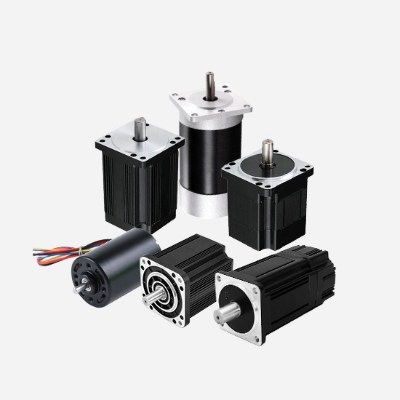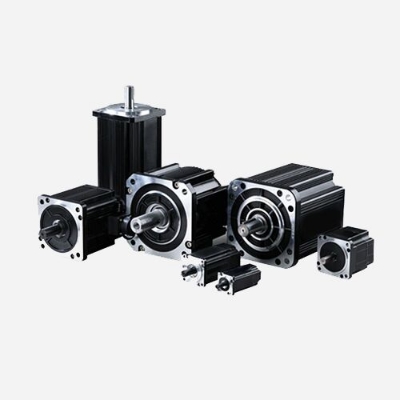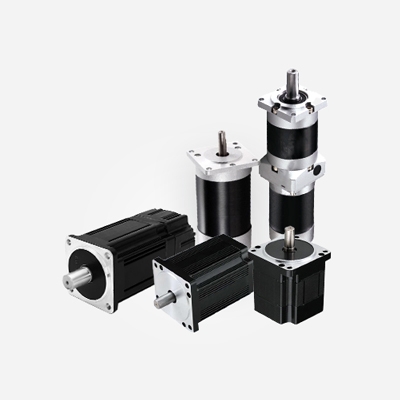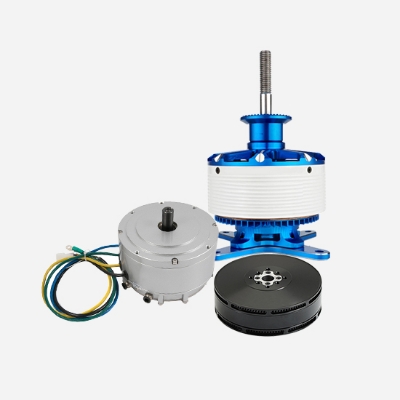A brushless DC motor controller is an electronic device used to control a brushless DC motor. It is mainly responsible for receiving input signals from a control signal source and driving the brushless motor by controlling current and voltage. However, due to long-term operation and the influence of various external factors, brushless DC motor controllers often fail.
The worm gear motor is a transmission machine with compact structure, large transmission ratio and self-locking function under certain conditions. It is easy to install and has a reasonable structure, and is increasingly widely used. It is a multi-stage motor composed of a helical gear motor installed at the input end of the worm gear motor. It can obtain a very low output speed and has higher efficiency than a single-stage worm gear motor, and has low vibration, noise and energy.
Brushless motors have been widely used in many fields. However, in actual operation, the performance of brushless DC motors is affected by many factors. To ensure that brushless motors can continuously and stably perform at their maximum efficiency, it is necessary to understand some factors that may affect the performance of brushless motors.
Planetary gear motors are known for their reliability and efficiency, but like any mechanical component, they may encounter issues over time. Troubleshooting these issues is crucial to maintaining optimal performance and preventing potential downtime. Brushless.com will explore common problems associated with planetary gear motors and provide insights into identifying and resolving them.
Traditional brushed motors, commonly used in marine applications, are susceptible to corrosion and water damage, leading to frequent maintenance and replacement cycles. Waterproof brushless motors, on the other hand, are designed to withstand the harsh conditions of the marine environment. Sealed against moisture and corrosion, these motors offer unparalleled reliability and durability, making them ideal for prolonged underwater use without compromising performance.
Brushless motors, also known as BLDC motors, have gained significant traction in aerospace engineering due to their numerous advantages over traditional brushed motors. Unlike brushed motors, which rely on physical brushes to transfer electrical energy to the rotor, brushless motors operate using electronic commutation, enhancing reliability and reducing maintenance requirements.
In the vast realm of machinery and automation, one of the essential components that drive precision and efficiency is the planetary gear motor. This sophisticated mechanism plays a crucial role in various applications, from robotics and automotive systems to industrial machinery. Let's delve into the world of planetary gear motors, exploring their structure, functions, and the myriad ways they contribute to modern technological advancements.
A planetary gear motor is a type of gear system that combines the principles of epicyclic gearing to achieve specific advantages in terms of torque, compactness, and efficiency. Selecting the right planetary gear motor is a critical decision that can significantly impact the performance and efficiency of your machinery or system. Planetary gear motors are known for their compact design, high torque output, and precise control, making them versatile for various applications.
In the dynamic landscape of industrial automation, advancements in motor technology play a pivotal role in enhancing efficiency, precision, and reliability across various sectors. Outrunner brushless motors have emerged as a disruptive force, offering unparalleled performance and versatility in industrial applications. Let's delve into the characteristics, advantages, and applications of these cutting-edge motors.
Electronic speed controllers are a key power electronic device used in a wide range of applications, from manufacturing to medical devices to energy production. The emergence and development of this technology has not only made it possible to improve the performance of motor systems but has also contributed to the digitalization, automation, and sustainability of modern industry. In this article, Inverter.com will take an in-depth look at why we need electronic speed controllers and the important role they play in different fields.




